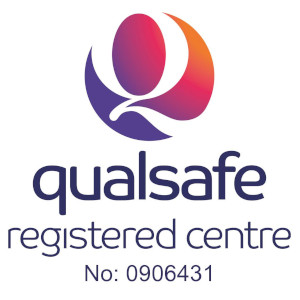Mental Health Blue Monday
Blue Monday mental health can affect us without us knowing. Read on why Blue Monday is now a national day, with Heather’s perspective on the day with her own experiences.

I look happy… I’m smiling. You ask, “How am I”? I say, “I’m Okay”. But am I? Our faces can look perceptive, never take for granted what they look like on the outside it can be different on the inside. Just because someone smiles, or seem okay, that they may not be okay. Blue Monday – it’s okay not to be okay. It is okay to have a little bit of blue Monday mental health, you are not broken!
Blue Monday Mental Health can effect most of us
Blue Monday has been given its day of the third Monday of January. This date has been chosen due to a combination of: 5-6 week month pay date, post-Christmas blues, cold dark nights, unpaid credit card bills or ongoing illness. It has been found we feel symptoms of ‘Monday Blues’ towards the end of the month before we have pay day. However, Blue Monday has been created – not to feel more blue but to take the opportunity to do something nice for somebody and to cheer ourselves up.
Heather at HMB Training has found a pattern that the last three years she has suffered with low mental health during the month of January. In 2019, life was good, work was busy with many courses, health was in a good state, family was in a good health BUT she still suffered with low mood, teary, snappy – all the signs of bad mental health. (More symptoms below in this blog). Then the end of the month appears and her mood lifts and back to a happier Heather. This year 2020, is no different. Heather was soo positive to have a positive outlook, not letting Blue Monday effect her this year, having targets to aim for, but…. as Monday is making an appearance her signs, symptoms and patterns are cropping up.
One thing you take from this blog is during the next week and beyond, do something nice, good for someone. Open a door, have a drink with someone and open up that conversation, organise a coffee and chat at work, create an event to get together for examples. Read on to understand what are mental health signs and symptoms and how to help someone and yourself.
Mental Health Signs and Symptoms
Signs and symptoms of someone experiencing mental health can be a broad range. If you believe a friend or family member to be suffering mental health you are the only person who will know them really well.
Early warning signs can include
- Losing interest in activities that you previously enjoyed
- Under-performing at work with no apparent explanation
- Increased anxiety levels, feeling exhausted and restless
- Isolating yourself and not wanting to socialise
- Changes in appetite such as skipping meals or over-eating / bingeing
- Changes in perception such as hearing or seeing things that others don’t
- Self-harming behaviour. Signs of cuts or bruising to uncommon areas of the body
Symptoms can include:
- Headaches OR tension OR chest pain OR tiredness
- Nauseous or sickness OR dry mouth OR shallow breathing OR fast , strong pulse OR high blood pressure
- Withdrawal behaviour OR under or over eating OR restlessness OR crying, and sad
- Exercising less OR lack of energy OR panic attacks
These are just some of the symptoms that someone could have. Being there and providing that first point of contact and conversation can be the difference of someone ending their own life. (Read on to know how to help someone…)

How to help someone?
Well done you if you have made it to here! It is very easy to help someone, just being there and having that conversation – are you okay? How is your day? How are things at work or home? Other ways we can help is researching online – Samaritans is a very useful website as well as NHS choices to get more information. Encouraging the person to book a doctors appointment, helping them with work load or house work, taking them out for lunch or for a walk.
How to help yourself?
Here are some ways to help your own mental health;
- Realise when stress is becoming a problem
- Build emotional strength and re-organise your lifestyle
- Eat a healthy diet and adopt regular eating patterns
- Make time for yourself to relax and socialise
- Set yourself goals or challenges to build confidence
- Avoid unhealthy habits
- Ask others to put your own problems into perspective
- Look for the positives and the things for which you’re grateful
- Learn a new skill
By next week Blue Monday will pass, we will be paid and and our bank balance will be healthier, the days will get lighter. By reading this blog you would have set a target or goal to aim for, recognised your symptoms and got a better perspective of your or somebodies mental health and get more support.
If you want to know more about mental health follow the links below for more information what our courses cover and our next course dates. We are always at the end of the phone to answer your questions – 01543 453338
To look at our popular Level 2 Mental Health First Aid:
https://www.hmbtrainingservices.co.uk/latest-news/offer/level-2-first-aid-mental-health
Please feel free to browse our latest courses here:
https://www.eventbrite.com/o/hmb-training-services-14886429643



